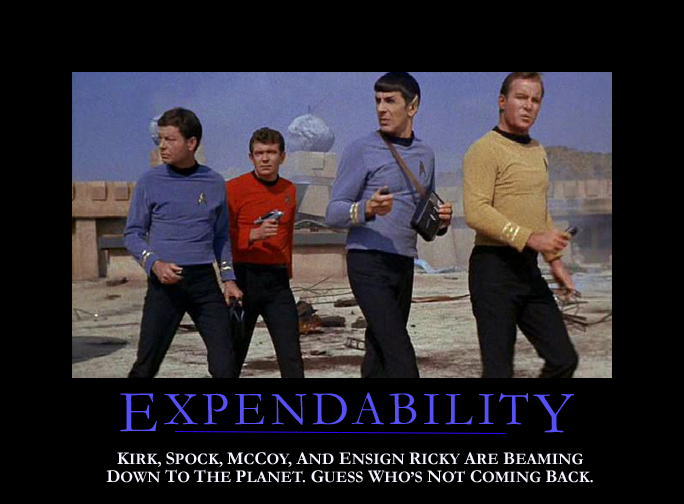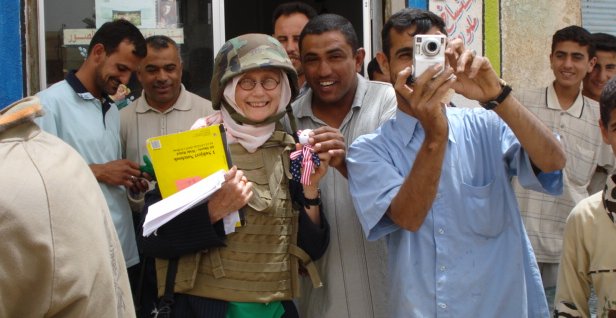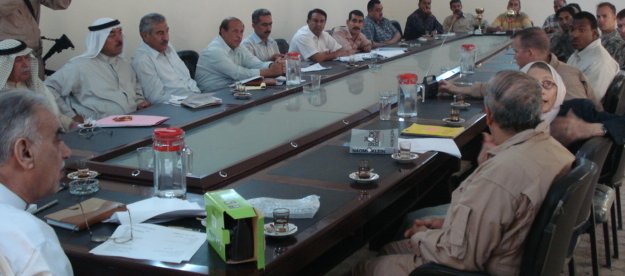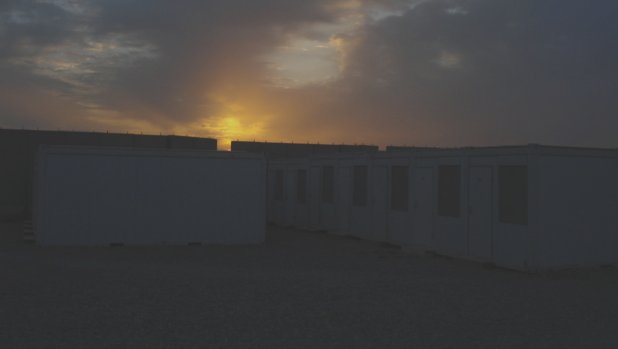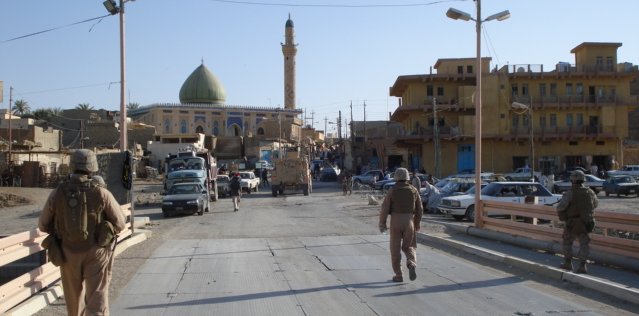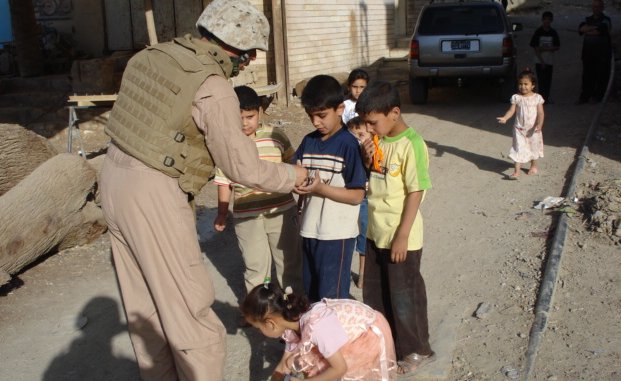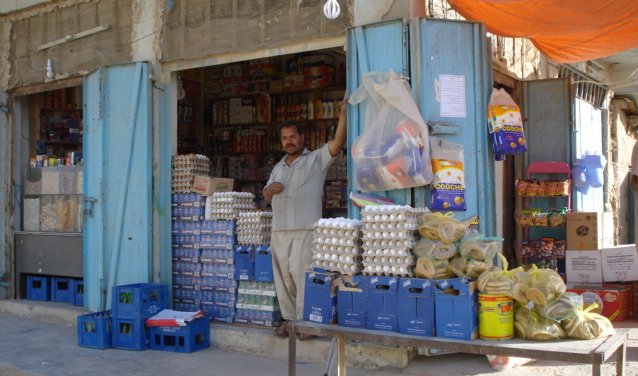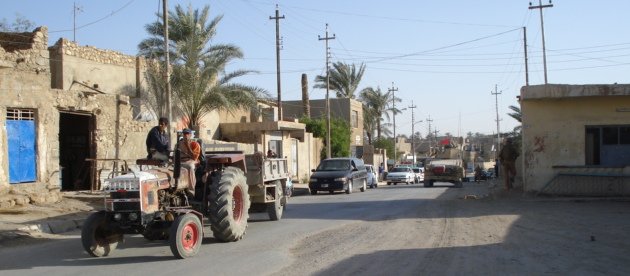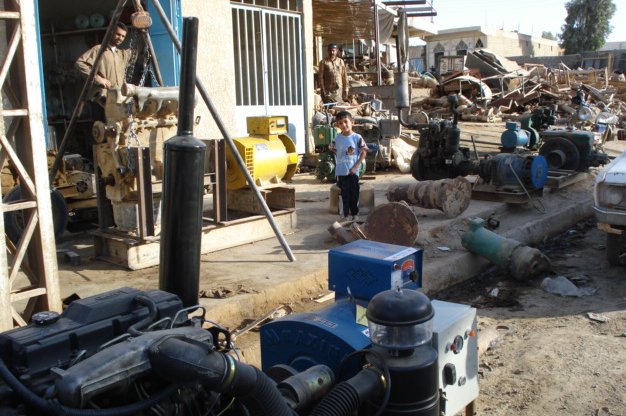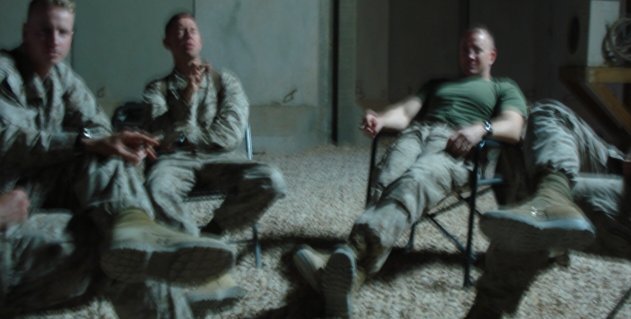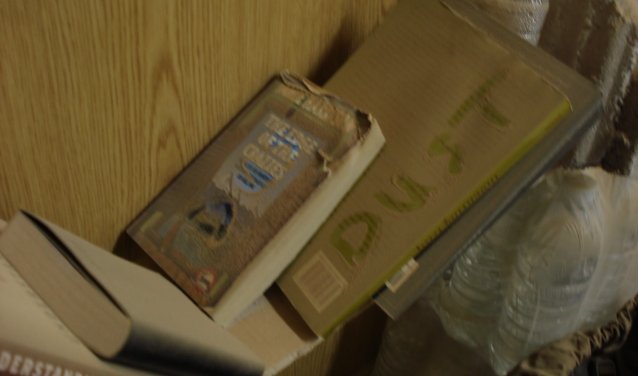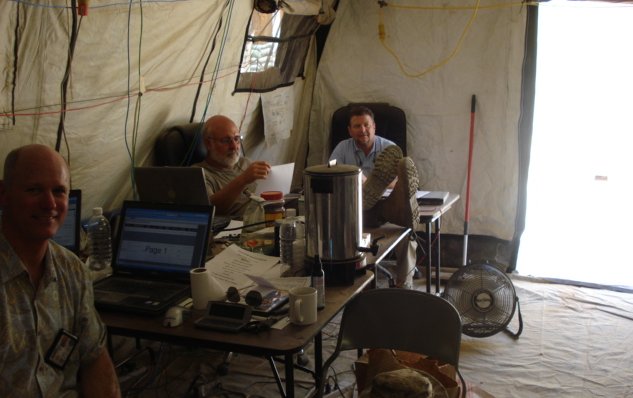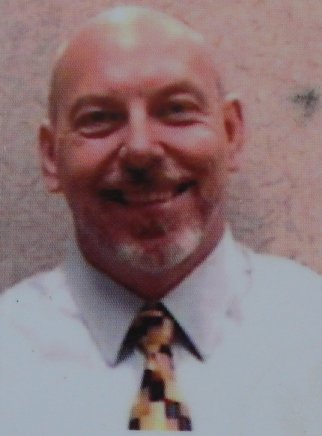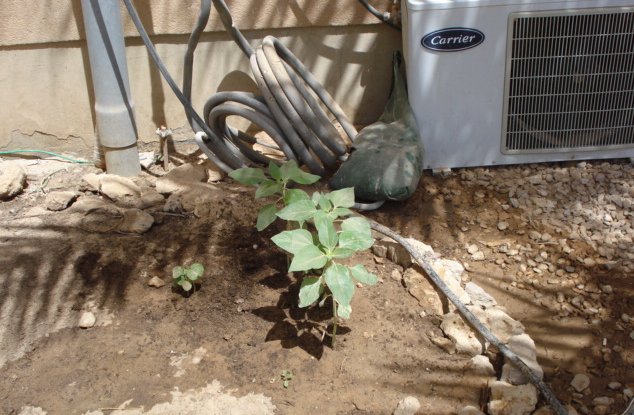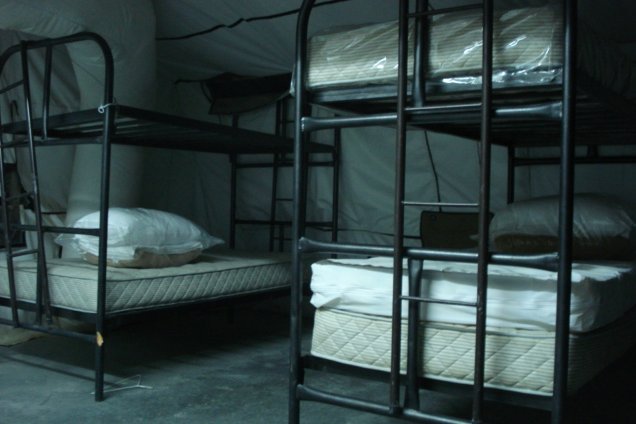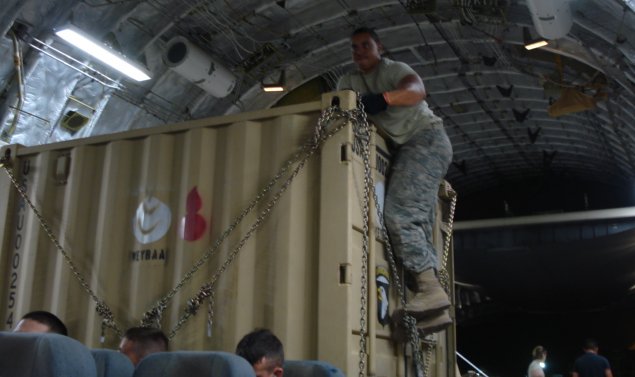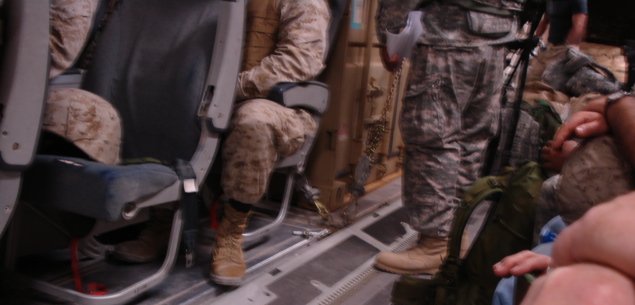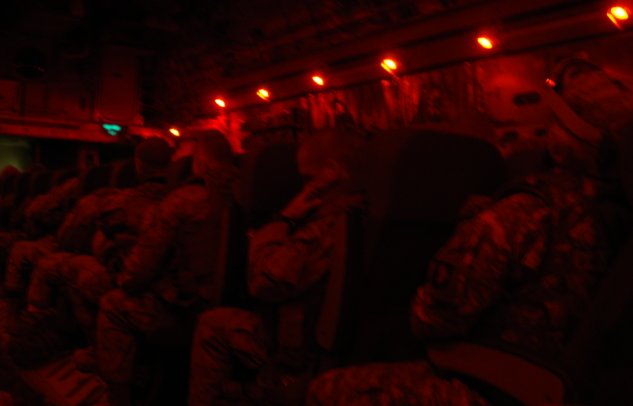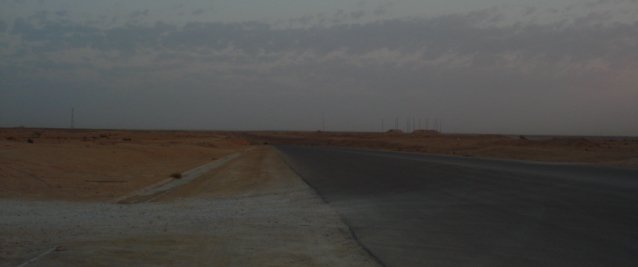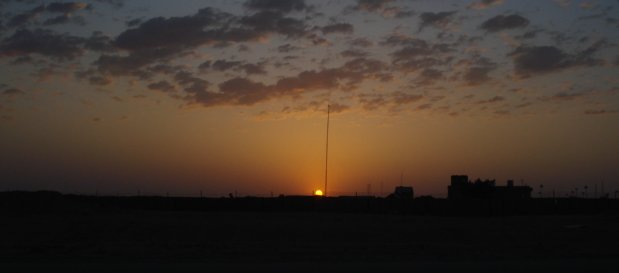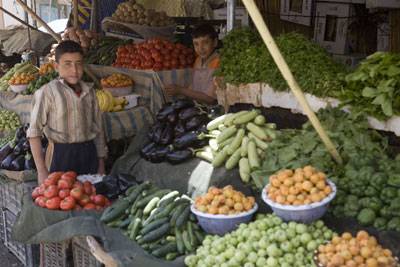
Pesky Flies
One advantage of having a lot of dust hanging in the air is that it reflects the hot sun. Al Asad has been unseasonably cool, but daytime temperatures still reach into the upper 90s and we now are bedeviled by little flies. You can tell when a guy hits a cloud of them. He starts to move his hands like windshield wipers. Marines often take off their caps to swat at the little pests, really to not much avail. They look like American flies, but they are smaller and they seem to be attracted to your mouth, nose and eyes. Maybe it the moisture they seek. I don’t think they bite; they just try to land on you.
Most of the endemic Iraqi bugs crawl on the ground. They can be nasty and poisonous but they cannot easily get around and we don’t generally have a flying bug problem, except these flies. I am hoping that they are seasonal and that their season is short. I recall that there were some around when I arrived last year, but not in the kind of numbers we are seeing now. Let’s hope it doesn’t last.
Iraqi Money Finally Flows
In the picture along side are USMC T-shirts for sale in the Hit marketplace.
On a more optimistic – and unexpected – note, Iraqi government money has started to flow into Western Al Anbar. We hope that this phenomenon does persist. Exactly what is happening is beyond my pay grade, but we have seen more than $100 million of Iraqi money funding a variety of projects, the kinds we (Coalition Forces) used to have to finance. It is about time and I hope this is a turning point. I am increasingly frustrated that the American taxpayer is getting stuck for things that the Iraqis have the money to do themselves. We are all about helping, but I don’t want to be left holding the bag. This Iraqi money flow is a good sign. Our job is not done, but I think we might be seeing the beginning of the solution.
Memories: Monty Python & Eddy Arnold
Yesterday’s cigar and movie night featured “Monty Python and the Holy Grail.” I don’t do cigars, but I did go to see the movie. Most of the guys watching the film were not even born when it was made. It makes me feel kind of old. Monty Python has developed into a cultural feature. Many people quote Monty Python lines w/o knowing really knowing their source. The pace seems slow when I actually watch Monty Python today. I am just waiting for the signature lines. “She turned me into a newt … I got better.” Monty Python has successfully jumped into the next generation. Whodathunkit?
Not so well remembered these days is Eddy Arnold who I-Tunes inform me recently died. He was my father’s favorite singer, with his renditions of “Cattle Call,” “Sixteen Tons,” & “The Green Leaves of Summer.” During the 1970s, he briefly parlayed his limited fame into a gig as spokesman for Log Cabin pancake syrup.
That Eddy Arnold’s passing would have gone unnoticed by me except for I-Tunes, which after analyzing my esoteric & eclectic music tastes reached into Iraq to tell me about it and made me aware of a very interesting marketing strategy. My guess is that the number of Eddy Arnold fans has dwindled to a vanishingly small number. I doubt if there would be living fans enough to justify the re-release of an album and in the pre-internet world nobody but family and friends would have marked the man’s shuffling off this mortal coil. But internet can identify and cheaply reach even a small number of fans and the cost of search out and reproducing his hits is almost zero, so suddenly there is a market for everything.
Even a huge record store could hold only a few thousand of the most popular recordings. I-Tunes features millions and it doesn’t matter if they sell only rarely since there is essentially no inventory carrying cost. Nothing is ever lost or becomes so obscure it cannot be found. Who knows, maybe Eddy Arnold will touch as whole new generation with “The Last Word in Lonesome is Me.” Maybe not. I have to admit that even I am not going to plunk down the $0.99 for one for the old country boy’s hits and even I-Tunes doesn’t feature my favorite Eddy Arnold album “Our Man Down South.”
17 Mai
Today is Norwegian constitution day. Congratulations. I neglected to congratulate the Poles on May 3 for theirs. Let me add that now. Speaking of memories, I like to remember “my” countries.

